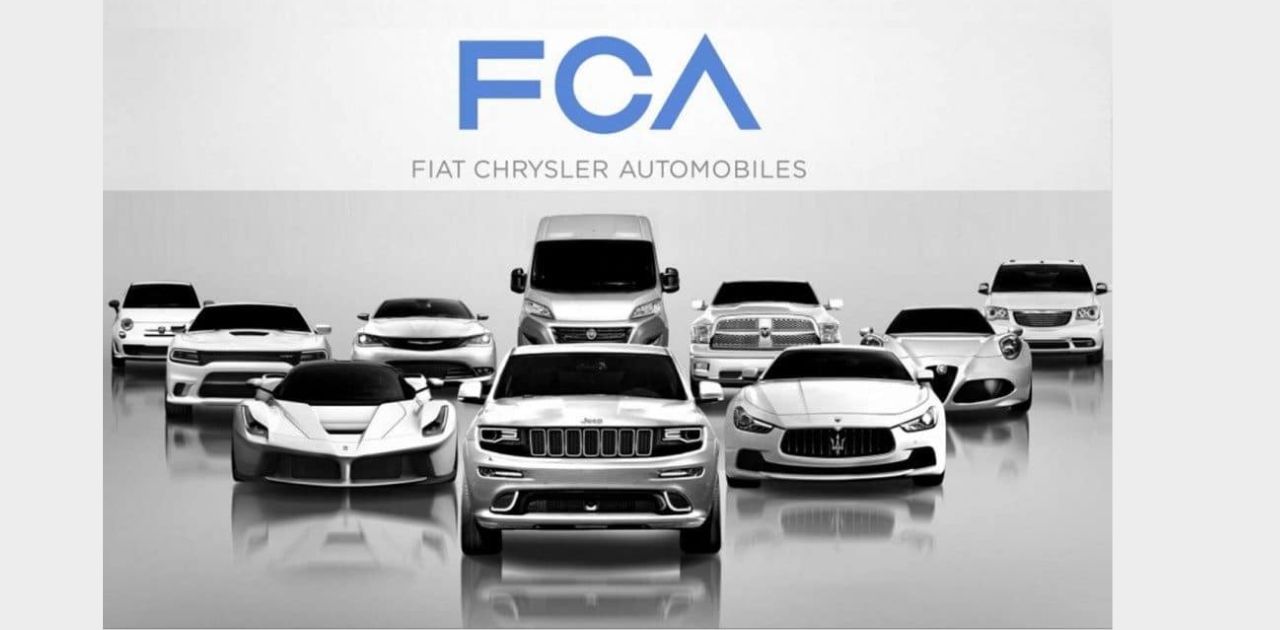Fiat Chrysler Automobiles (FCA) has been a major player in the automotive industry, offering a diverse range of vehicles through its extensive network of dealerships. For consumers and car enthusiasts alike, understanding the world of FCA dealers is crucial when considering purchasing or servicing a vehicle from one of their many brands. This comprehensive guide will explore the various aspects of FCA dealerships, from their history and structure to the services they offer and the challenges they face in today’s rapidly evolving automotive landscape.
The Evolution of Fiat Chrysler Automobiles Dealers
A Brief History
The story of FCA dealers begins with the individual histories of Fiat and Chrysler. Chrysler, founded in 1925, quickly established a strong dealer network across the United States. Fiat, on the other hand, had a significant presence in Europe and other parts of the world. The merger of these two automotive giants in 2014 created a global powerhouse with an extensive dealer network spanning multiple continents.
The Merger’s Impact on Dealerships
The formation of FCA brought about significant changes for dealers:
- Integration of product lines
- Adoption of new technologies and sales strategies
- Expansion of service offerings to accommodate a wider range of vehicles
- Rebranding efforts to reflect the new corporate identity
Dealers had to adapt quickly to these changes while maintaining their commitment to customer service and sales excellence.
Structure and Organization of FCA Dealerships
Franchise Model
FCA operates on a franchise model, where independent business owners run dealerships under the FCA brand umbrella. This model allows for local market expertise while maintaining consistent brand standards across the network.
Brand Differentiation
FCA dealerships often represent multiple brands under the FCA portfolio. However, some dealerships specialize in specific brands to cater to particular market segments. The main brands include:
- Chrysler
- Dodge
- Jeep
- Ram
- Fiat
- Alfa Romeo
- Maserati (in select locations)
Dealer Tiers
FCA categorizes its dealers into different tiers based on factors such as sales volume, customer satisfaction scores, and adherence to brand standards. Higher-tier dealers often receive additional support and incentives from FCA.
Read More: Maximizing AdWords Success for Small Businesses: A Comprehensive Guide
Services Offered by FCA Dealers
New Vehicle Sales
The primary function of FCA dealers is to sell new vehicles. Dealerships showcase the latest models from FCA brands, offering test drives and detailed product information to potential buyers.
Used Vehicle Sales
Many FCA dealers also maintain a robust used car inventory, including certified pre-owned vehicles that have undergone thorough inspections and come with extended warranties.
Service and Maintenance
FCA dealerships provide comprehensive service and maintenance for all FCA brand vehicles. This includes:
- Routine maintenance
- Warranty repairs
- Recall services
- Major repairs and diagnostics
Parts and Accessories
Dealers stock genuine FCA parts and accessories, ensuring customers can maintain the authenticity and performance of their vehicles.
Financing and Leasing
FCA dealers offer various financing and leasing options through partnerships with financial institutions and FCA’s own financial services arm.
The Customer Experience at FCA Dealerships
Sales Process
The sales process at FCA dealerships typically involves:
- Initial contact and needs assessment
- Vehicle selection and test drives
- Negotiation and financing discussions
- Paperwork and final sale
- Vehicle delivery and orientation
Many dealers now offer online tools to streamline parts of this process, allowing customers to begin their journey from home.
Service Department Experience
FCA dealers strive to make the service experience as smooth as possible for customers. This often includes:
- Online appointment scheduling
- Comfortable waiting areas with amenities
- Shuttle services or loaner vehicles for longer repairs
- Regular updates on repair progress
- Detailed explanations of work performed
Customer Satisfaction Initiatives
FCA places a strong emphasis on customer satisfaction, implementing various programs to ensure a positive experience:
- Mystery shopper programs
- Post-sale and post-service surveys
- Customer loyalty rewards programs
- Ongoing training for dealership staff
Technology and Innovation in FCA Dealerships
Digital Sales Tools
FCA dealers are increasingly adopting digital tools to enhance the sales process:
- Virtual showrooms and 360-degree vehicle tours
- Online configurators for customizing vehicles
- Digital signature capabilities for paperwork
- Video chat consultations with sales representatives
Service Department Advancements
Technology is also transforming the service experience:
- Advanced diagnostic equipment for faster, more accurate repairs
- Tablet-based service check-in processes
- Real-time updates via text or email on vehicle status
- Online parts ordering systems for customers
Connected Vehicle Services
As FCA vehicles become more connected, dealers are adapting to support new technologies:
- Over-the-air update capabilities
- Integration with smartphone apps for remote vehicle management
- Assistance with setting up and troubleshooting connected features
Challenges Facing FCA Dealers
Changing Consumer Preferences
Dealers must adapt to shifting consumer preferences, including:
- Increased demand for SUVs and crossovers
- Growing interest in electric and hybrid vehicles
- Preference for online research and purchasing options
Regulatory Pressures
FCA dealers face various regulatory challenges:
- Emissions standards and fuel efficiency requirements
- Safety regulations and recall management
- Consumer protection laws and transparency in pricing
Competition from Direct-to-Consumer Models
The rise of direct-to-consumer sales models, particularly in the electric vehicle market, poses a challenge to traditional dealership structures.
Inventory Management
Balancing inventory levels to meet customer demand while minimizing carrying costs is an ongoing challenge, especially in light of recent supply chain disruptions.
The Future of FCA Dealerships
Electrification and Alternative Fuels
As FCA expands its electric and hybrid vehicle offerings, dealers will need to:
- Invest in charging infrastructure
- Train staff on new technologies
- Adapt service departments to handle electric powertrains
Digital Transformation
The continued digitization of the car-buying process will require dealers to:
- Enhance their online presence and capabilities
- Integrate virtual and in-person experiences seamlessly
- Leverage data analytics for personalized customer interactions
Evolving Business Models
FCA dealers may need to explore new business models to remain competitive:
- Subscription-based vehicle access programs
- Expanded mobility services beyond traditional vehicle sales
- Partnerships with tech companies for innovative customer experiences
Frequently Asked Questions
1. How do I find the nearest FCA dealer?
Answer: You can easily locate the nearest FCA dealer by visiting the official FCA website and using their dealer locator tool. Simply enter your zip code or city, and you’ll be provided with a list of nearby dealerships, along with their contact information and directions.
2. Can I service my FCA vehicle at any dealership, or do I need to go to the one where I purchased it?
Answer: You can service your FCA vehicle at any authorized FCA dealership, regardless of where you purchased it. All FCA dealers have access to the necessary tools, parts, and training to service your vehicle properly.
3. What financing options are available at FCA dealerships?
Answer: FCA dealerships offer a variety of financing options, including traditional loans, lease agreements, and special financing promotions. They work with multiple lenders, including FCA’s own financial services arm, to provide competitive rates and terms tailored to your needs.
4. How does the FCA certified pre-owned program work?
Answer: The FCA certified pre-owned program offers thoroughly inspected used vehicles with additional warranty coverage. These vehicles must meet specific age and mileage criteria, pass a comprehensive inspection, and have a clean vehicle history report. Certified pre-owned vehicles often come with benefits such as roadside assistance and a limited warranty.
5. What should I do if I’m not satisfied with my experience at an FCA dealership?
Answer: If you’re not satisfied with your experience, first try to resolve the issue directly with the dealership’s management. If that doesn’t resolve your concerns, you can contact FCA’s customer service department for assistance. They can help mediate the situation and ensure your concerns are addressed appropriately.
Conclusion
Fiat Chrysler Automobiles dealers play a crucial role in the automotive ecosystem, serving as the primary point of contact between the manufacturer and consumers. As the industry continues to evolve, FCA dealers are adapting to meet changing customer expectations, technological advancements, and regulatory requirements.
The future of FCA dealerships will likely involve a blend of traditional practices and innovative approaches. By embracing digital technologies, focusing on customer experience, and preparing for the shift towards electrification, FCA dealers can position themselves for continued success in the years to come.
For consumers, understanding the world of FCA dealers empowers them to make informed decisions when purchasing or servicing their vehicles. Whether you’re in the market for a new Jeep, considering a certified pre-owned Chrysler, or need service for your Dodge, FCA’s network of dealerships stands ready to meet your automotive needs.
As the automotive landscape continues to transform, FCA dealers will undoubtedly play a pivotal role in shaping the future of car buying and ownership experiences. By staying attuned to customer needs and embracing innovation, these dealerships will continue to be essential partners for FCA and valued resources for automotive consumers worldwide.

J.K. Rolowing, an avid hiking enthusiast with 8 years of experience, blends passion and nature in captivating tales. Embracing the trail, weaving adventures through words.











